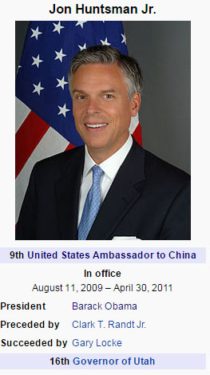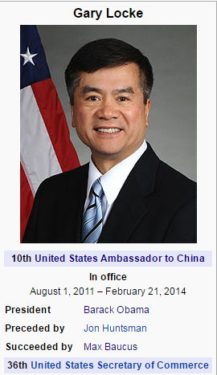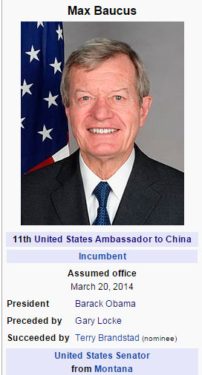Had a dream last night that I was in Arizona, and there were these mutant and/or radioactive worms (because, uhhhh, I’m sure the soil in Arizona is great for worms). But they were part worms, and part ticks. A few were chewing their way into my calf. I looked down and said, “Wait, am I the only one getting a ‘superhero origin story’ vibe here?”
Because I know you wanted to know! Given my track record, consider this advice on who not to bet on. I made some sort of mistake putting three on Louisville over LSU. But what’s done is done.
New Mexico over UTSA (3)
Houston over San Diego State (1)
Appalachian State over Toledo (1)
Central Florida over Arkansas State (2)
Southern Miss over Louisiana (2)
Tulsa over Central Michigan (3)
Memphis over Western Kentucky (2)
BYU over Wyoming (1)
Colorado State over Idaho (2)
Old Dominion over Eastern Michigan (1)
Navy over Louisiana Tech (2)
Troy over Ohio (2)
Hawaii over Middle Tennessee (1)
Mississippi State over Miami U (2)
Maryland over NC State (2)
Army over North Texas (3)
Temple over Wake Forest (2)
Washington State over Minnesota or Northern Illinois (3)
Boise State over Baylor (3)
Pittsburgh over Northwestern (2)
West Virginia over Miami (2)
Utah over Indiana (3)
Kansas State over Texas A&M (1)
South Florida over South Carolina (2)
Virginia Tech over Arkansas (2)
Colorado over Okahoma State (2)
TCU over Georgia (1)
Stanford over North Carolina (2)
Nebraska over Tennessee (1)
Air Force over South Alabama (3)
Michigan over Florida State (2)
Louisville over LSU (3)
Georgia Tech over Kentucky (1)
Alabama over Washington (3)
Ohio State over Clemson (3)
Wisconsin over Western Michigan (2)
Florida over Iowa (1)
USC over Penn State (2)
Oklahoma over Auburn (3)
Alabama over Ohio State (3)Photo by Parker Knight 
One of my favorite politician stories is this: Back home, we had a Republican congressman who was conservative in most respects but there were two exceptions. First, he checked all the right boxes but by most accounts wasn’t especially religious. That was minor. The second one, which became major, is that he favored gun control. His father was killed by gun violence. He was facing regular grumblings of a primary challenge, and something needed to be done. So… what to do? Well, he changed his view on gun control and attributed it to having been Born Again.
He was never primaries again and now sits atop one of the most important committees in the House.
The forbidden analogy.
According to Godwin’s law and its corollaries, Hitler and Nazi analogies are almost always a bad idea. They are more likely to derail a conversation than add to it.
If you’re trying to convince someone of something, comparing them to Hitler and the Nazis is probably the wrong way to get them to listen to you. It also leaves room for one objection. If someone is so like the Nazis that the comparison is apt, they might not amendable to argument anyway. (Actually, I’m not so sure. I see some moral distance between the German who didn’t approve of but who acquiesced to Nazi rule and high-ranking leaders of the party. This might be offensive, but most citizens of the United States acquiesce to some pretty brutal policies who if asked would claim not to approve. Not saying that’s the same thing….which is one of the problems with Nazi analogies in the first place.)
The analogy is distracting. If someone is to be opposed because he is “a lot like Hitler,” then it shouldn’t be too hard to point out the ways he is objectionable without saying “and this is what the Nazis did, too.” If someone really wishes to single out an ethno-religious groups for “special treatment,” or if he endorses politically motivated violence, or if he threatens to revive something like the Palmer raids, then it shouldn’t be too hard to argue that that person is proposing something wrong. If it is hard, then your problem is different from mere analogizing.
Finally–and I’m not sure I’ve heard this objection raised before–the analogy can normalize Nazism. For the purposes of naming things as they are, of course, Nazis should be called Nazis. Neo-Nazis should also be called Nazis. The “alt right”….maybe call them Nazis, I guess, depending on who we’re talking about and what they advocate.
I’m not sure how far down the ladder it’s okay to go, though. If someone is in principle persuadable to your view, or if they supported the “unsupportable” for non-Nazi’ish reasons, then it’s possible overusing the word “Nazi” in describing that person might make less illegitimate a term that heretofore has been an automatic insult.
In a sense, overuse of the word grants Nazis “official opposition” status. If that’s how things are, then that’s how they are. But we shouldn’t overdetermine the result.
Please don’t misunderstand me. If someone comes to think the term “Nazi” is now “less illegitimate” than it was before, the fault lies primarily with that person. People sometimes choose evil, and if we make it easy for them to do so, we share some of the blame. But the principal responsibility lies with the chooser.
The analogy revived.
In two fairly recent posts Over There, I’ve seen something like that analogy used for our present situation.Before I discuss them, I’d like to point out that I am citing only the parts that speak to the issue of Nazi analogies. Each post makes more complex arguments and should not be judged solely by what I excerpt here. So read the whole thing(s).
The first post is Saul De Graw’s reflections on how bad the new presidential administration might be:
We also like to think that our laws and Constitution will protect us from the worse from happening but laws and Constitution are only as strong as the people themselves. A friend of mine posted another story on Facebook. The author of the post’s grandmother was a Jewish elementary school student in Hitler’s Germany. She needed surgery in 1932 and 1933. In 1932, all of the girl’s classmates and teachers came to visit her in the hospital. In 1933, no one did.
This story might seem hyperbolic (and it does raise Godwin’s Law) but it demonstrates that the norms of bigotry can change rapidly and seemingly overnight. Maybe the girl’s classmates and teachers did not become more anti-Semitic, but they knew it would be a serious social cost and possibly a physical cost to visit their Jewish classmate in the hospital. Most people are go along and get along types. You don’t need a nation of willing executioners. You just need enough people willing to commit acts of violence with the consent of government, and most of the rest of the people will just put their heads down to save themselves and their families.
The second is Mike Schilling’s takedown of the argument that liberals’ alleged smugness played a role in the president-elect’s victory. (In my opinion, the Nazi analogy lurks in the background, although Mike himself makes no explicit reference to it and the person he’s referring to is a post-World War II “scholar.”):
In case you’re not familiar with the work of Kevin Macdonald, let me summarize. In analyzing the recurrence of anti-Semitism through history, he found the usual explanations wanting, and hit upon one that, while not new, had been oddly absent from almost all recent academic discussions: they deserve it. Jews really are awful, he observed: clannish, avaricious, and amoral, with disdain for societal norms and non-Jews in general that makes them a cancer on any society foolish enough to admit them. Anti-semitism is an entirely natural response, in effect the immune system working to fight an infection.
Much of the reaction to the recent election has included a similar insight, which, much like Dr. Macdonald’s, is moving beyond the area that once hosted it. [The president-elect’s] popularity among voters is explained by the fact that liberals are smug. Of course voters dislikes liberals: who wouldn’t? They’re whiny losers, overeducated but lacking any sense, haters of patriotism, religion, and everything genuinely American, nanny-staters, Godless socialists, baby-killers, special snowflakes who need safe spaces. And worst of all, smug. No wonder their political fortunes are slipping; no one can stand them. (Even worse for fans of Dr. Macdonald, liberals are often… Well, you know.)
What surprised me wasn’t so much that the analogy was used (or in Mike’s case, implied). That’s to be expected on a liberal-leaning blog in which almost all authors and contributors opposed the president-elect and believed his campaign represented an unacceptably racist, xenophobic, or authoritarian turn in US politics.
What surprised me slightly more was that no one, as far as I can tell, actually complained about Godwin’s law. The closest was one comment to Mike’s post, which complained that “[i]t seems like the point of this article was to stack the concepts of liberalism, smugness, and anti-Semitism on top of each other in so many combinations that it will seem like anyone who accuses liberals of smugness is anti-Semitic.”
A lot of things could explain the unwillingness to call out Godwin’s law. It is a liberal-leaning blog, after all. And for each OP, the main point wasn’t the Nazi analogy but some other thing. In Saul’s case, he forthrightly admits the dangers of “Godwin’s law” and in Mike’s case, as I’ve said, the analogy was only implicit. And maybe those posts just happen to show up on the right day/time so that no one chose to discuss the analogy’s aptness.
Directing the analogy inward.
I’m not inclined to call Godwin’s law, either. Whatever differences I might have with Saul’s post, I have no standing whatsoever to tell him that he doesn’t really fear what he says he fears. I’d go even further and say his”…and most of the rest of the people will just put their heads down to save themselves and their families” is too charitable.It’s far from clear that the question was always saving oneself and one’s family. It might have been more like “saving oneself the inconvenience and opportunity cost” of raising even a token opposition.
For Mike’s post, a more charitable reading of his analogy is that he’s identifying a prior instance of fallacious reasoning and noting how in his opinion current commentary succumbs to similar reasoning. I’m not sure I agree completely–and I see more disanalogy than analogy–but I can’t say he’s wholly wrong, either.
In fact, looking to myself, the chance that the analogy might have some teeth haunts me in our present situation. My insistence on “understanding the voters, my own “gut” preference for the president-elect, and my perhaps too cheerful optimism that (to use what seems to be our newest cliche) “our institutions can survive the stress test”–these all suggest to me something similar to the German citizen who silently disagreed with the Nazis’ racial policies or who complacently believed Hitler might not be so bad or that his ministers and the institutions of civil society could control him.
The dangerous thing is that I could probably get away with complacency. I’m not a member of the demographics most likely to be targeted, although some of my loved ones are. And Saul said, who’s targeted and who’s not targeted can change, sometimes very quickly.
I really want to agree with Scott Alexander. He has written that as bad as the president-elect is likely to be, he’s not the white nationalist wolf some people are crying. And on paper, Mr. Alexander is right. As far as I can tell, the last president who indulged in overt racism and white nationalism was Woodrow Wilson, and the next president ain’t no Wilson. That’s probably both a good thing and a bad thing. But I also fear the new guy is as much of a wolf as he can be.
More to the point, I do realize that the way things happen in the US are different from how they happen in Europe. Not “exceptional,” just different. Our persecutions and oppressions tend to be more decentralized, though no more benign for that. And I must keep things in historical perspective. Maybe a few months from now I’ll find the new president is just a regular politician with a populist streak, of the sort we’ve had before and have survived.
Conclusion.
Even flirting with the Hitler analogy by implication compares those of my family, friends, or readers who voted for the president-elect to Germans who voted for national socialism in the 1930s. I ask only that they realize I’m directing this analogy to myself and my own complacency. I disagree strongly with their decision, but I refuse to direct the analogy to them. As an analogy, it works best for removing the beams in the eye of those who use it. Motes in others’ eyes require a more precise instrument.
smh pic.twitter.com/1BQSPMyrlI
— Haley Byrd (@byrdinator) December 2, 2016
Update: These are the images:
The problem-solving skills of 30 Ph.D. scientists were compared to those of 15 conservative Protestant ministers. Of particular interest was the frequency with which these groups generated confirmatory (rather than disconfirmatory)experiments to test their hypotheses. Experimental results showed that—contrary to a popular assumption—the reasoning skills of the scientists were not significantly different from those of nonscientists. In this study, the ministers showed a longer latency to speculation and generated more experiments per hypothesis than did the scientists. These findings are discussed in terms of the psychology of the scientist.
Source: Psychology of the scientist: An analysis of problem-solving bias | SpringerLink
John Weaver hunches his angular frame over a Styrofoam cup of coffee in the basement cafeteria of the United States Senate and tries to explain what might seem–to an outsider–his peculiar political loyalties. Once a loyal Republican strategist who directed the presidential aspirations of über-conservative Phil Gramm and helped plot John McCain’s maverick primary run in 2000, he has since reregistered as a Democrat and severed consulting ties to all Republicans except McCain, for whom he still serves as chief strategist. “I only work for Democrats now,” he tells me. Noticing that he has overlooked the party affiliation of his most prominent advisee, I helpfully add: “And John McCain.” Weaver shrugs his shoulders and grins, “Oh, right.”
It’s easy to forget that the Arizona senator is not, in fact, a Democrat. In the past year he has stood against his party on so many prominent and contentious issues that his concurrences with GOP dogma have become more of an exception than a rule. In the conservative media, he has become a figure of vilification on par with Tom Daschle. Last fall, when his name came up in a meeting of House Republicans, he was booed. And it is no exaggeration to say that he has co-sponsored virtually the entire domestic agenda of the Democratic Party. One prominent Democrat enthuses, “He’s the leader of the loyal opposition.” Typically that role falls to a leader of the opposition party. But the most popular and effective champion of the Democratic Party’s values isn’t Tom Daschle. It’s John McCain. And at a moment when the party is casting about for a leader to define it against a popular president, and McCain is casting about for a home after his virtual expulsion from the GOP, there is an obvious solution to both dilemmas: John McCain ought to become a Democrat–and a presumptive front-runner for the party’s presidential nomination in 2004.
Source: The New Republic Online: What’s in a Name?
Trump picks trade advocate to be ambassador to China (New York Times)
Mr. Branstad, whose selection was first reported by Bloomberg News and confirmed on condition of anonymity on Wednesday by two people with direct knowledge, is close to President Xi Jinping, whom he has known for more than three decades. They met in 1985, when Mr. Branstad was serving his first term as governor of Iowa and Mr. Xi was a 31-year-old rural official in Hebei Province, studying modern American agriculture, including hog and corn farming in Iowa.
Mr. Branstad has courted China as governor, promoting his state’s farm goods. As ambassador, he would be tasked with managing a complex relationship that Mr. Trump has already indicated he is willing to shake up. The president-elect’s call with Taiwan’s president last week prompted criticism from Beijing, which considers it a breakaway province, and Mr. Trump responded with posts on Twitter attacking China for its trade practices and provocative moves in the South China Sea.
Trump picks Iowa Gov. Terry Branstad — a ‘friend’ of China’s leader — as Beijing ambassador (Washington Post)
Branstad has extensive ties to China and a personal friendship with Chinese President Xi Jinping that dates back decades. If confirmed, the move could go some way to reassure China’s leadership that Trump understands the importance of healthy relations with Beijing.
The Chinese reacted with concern to Trump’s protocol-busting phone call last Friday with Tsai Ing-wen, the leader of Taiwan, an island that China considers a rogue province. Trump repeatedly attacked China on the campaign trail and in a pair of tweets last Sunday over its trade and currency policies, as well as the way it has staked its territorial claims in the South China Sea. He has threatened to slap tariffs of up to 45 percent on Chinese goods if Beijing didn’t “behave.”
The selection of Branstad was first reported by Bloomberg News and confirmed Wednesday by a transition official, who requested anonymity because the nomination had not yet been formally announced.
China’s foreign ministry did not confirm the report, but reacted warmly.
“First of all, I would like to say that Mr. Branstad is an old friend of the Chinese people and we welcome him to play a greater role in promoting Sino-U. S. relations,” spokesman Lu Kang told a regular news conference.
“The U.S. ambassador to China is an important bridge between the U.S. government and the Chinese government. No matter who is in this position, we are willing to work with him to push forward the sound, steady and steady development of Sino-U. S. relations.”
In an article ostensibly about the importance of free birth control, is tucked this paragraph.
At the time, I didn’t realize that I could get pregnant if I missed a week or two of pills. In my high school sex-ed classes, the teacher preached about his kids and their purity vows and showed us slides of STDs, rather than giving us helpful information about sex and family planning. Like most teens, I turned to my friends to fill in the gaps, asking them the questions that I didn’t feel comfortable asking my parents, or looking for answers I didn’t get in class. One of the myths my friends told me was that if I’d been on birth control for a long time, it would build up in my system and I couldn’t get pregnant (definitely false, as I later learned).
I’ll have to forward this to Clancy, who does argue that young people really don’t know what they’re doing. We both believe in comprehensive sex-ed, though she supports less complete sex-ed forcefully and I support more complete sex-ed less forcefully. (“More complete” and “Less complete” defined by whether natural methods such as withdrawal or rhythm should be explained.)
On the other hand, as someone mentioned when I brought this up, “It’s right there on the box.”
As far as birth control goes, I’m less interested in access to The Pill as I am access to long-term contraception like IUD and Depo.
Please ignore anything below this, there is experimentation in progress






